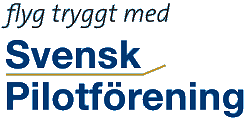Future Airline Pilot ProfessionToday’s aviation shows a significant gap between the requirements for a pilot license – to safely fly the aircraft – and the actual real requirements and demands of the profession. Initiatives and regulatory changes, like the APS MCC (Airline Pilot Standard Multi Crew Cooperation), intended to bridge that gap and supply ‘industry-ready’ pilots may be a first step, but they actually do not address the root cause of the problem: the lack of a proper initial pilot training, focused on the profession rather than the license. The primary goal of ‘excellency’ in training, is to attract and select those students who bring with them the proper skills, knowledge, personality and dedication... something that some people call the ‘Right Stuff‘.
Furthermore, the education that will be provided should not only emphasize on delivering the technical knowledge and background, but rather make sure that all areas of knowledge are integrated in a way to help the pilot to develop a deep understanding of what is actually required to manage an airplane and – crucially – the ability to do so. “A history book on the shelf is always repeating itself” … while being a quote from a song, there’s a lot of truth in that statement. History teaching is usually concentrating on facts and numbers, rather than facilitating the global conception of causal relation and the transfer of a broader knowledge.
Aviation in many ways is following the same path, leading to the same traps. We use incident/accident reports, safety reports, data sources and other means to learn from mistakes made. However, these findings are usually addressing singular events, problems and failures, then being transferred into training at a much later stage, rather than also making their way into the initial stages of training and addressing the root cause(s). Scientific research, such as the Fleishmann Job Analysis, shows that due to the growing complexity of the aviation business and due to the growing complexity of automation as well as the global aviation system, pilots nowadays and in future require even more in-depth technical and managerial knowledge as well as resilience and management skills.
This can only be achieved through a thorough selection of candidates as well as a better and more robust and diverse initial pilot training, than is the case today. Pilots’ competencies must be trained in an integrated manner, with the goal of such training being the transfer of the knowledge in a way that makes sure the pilot trained is actually able to apply it. That means that competencies should not be trained in isolation. And it means the application in real world environment and aircraft. At the end, the final objective for a professional pilot is a “safe, sustainable lifetime performance” – something that needs to be reflected already at the stage of initial pilot training and the selection process that precedes it.
Publicerad 2020-10-21 av Rebecca
|


